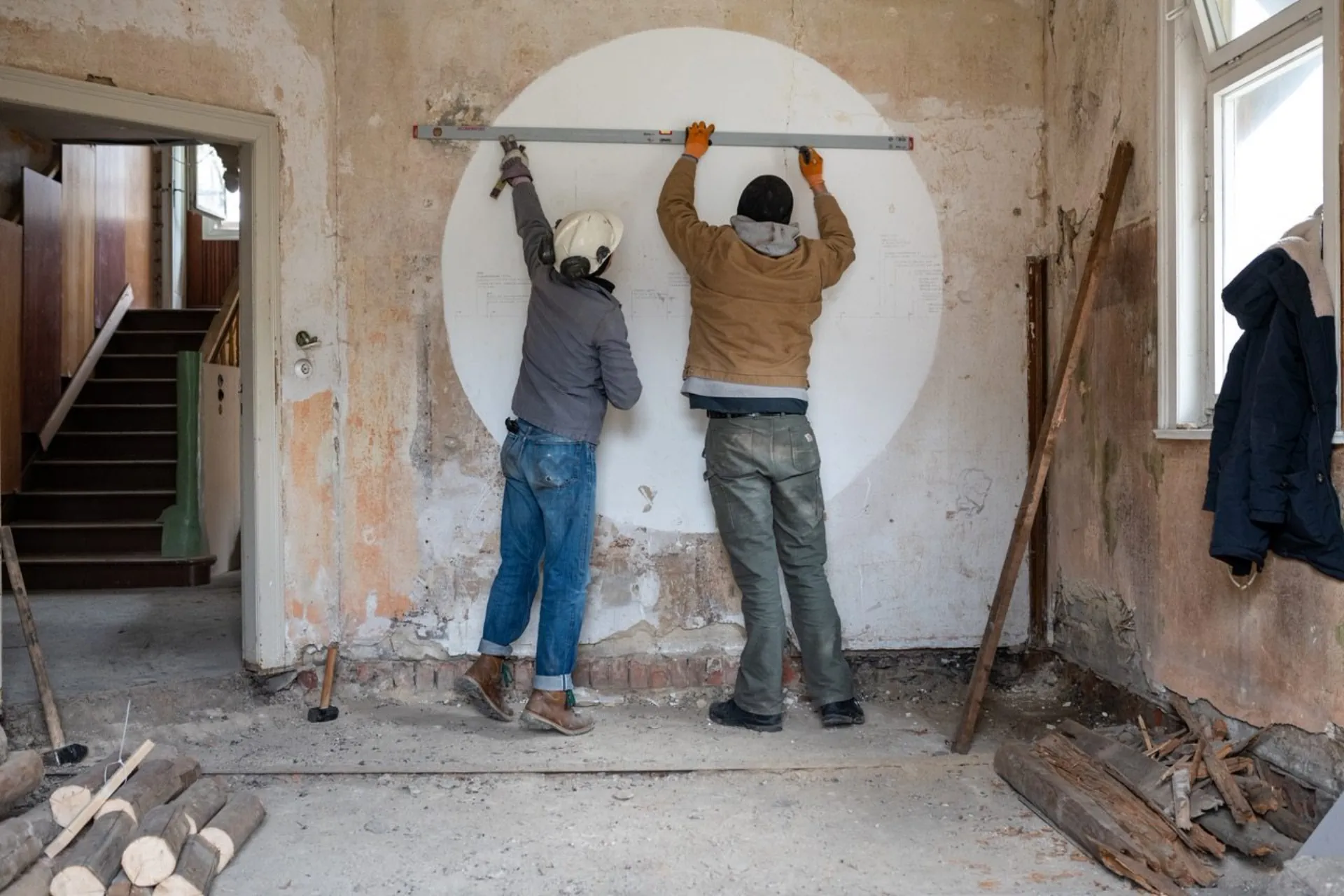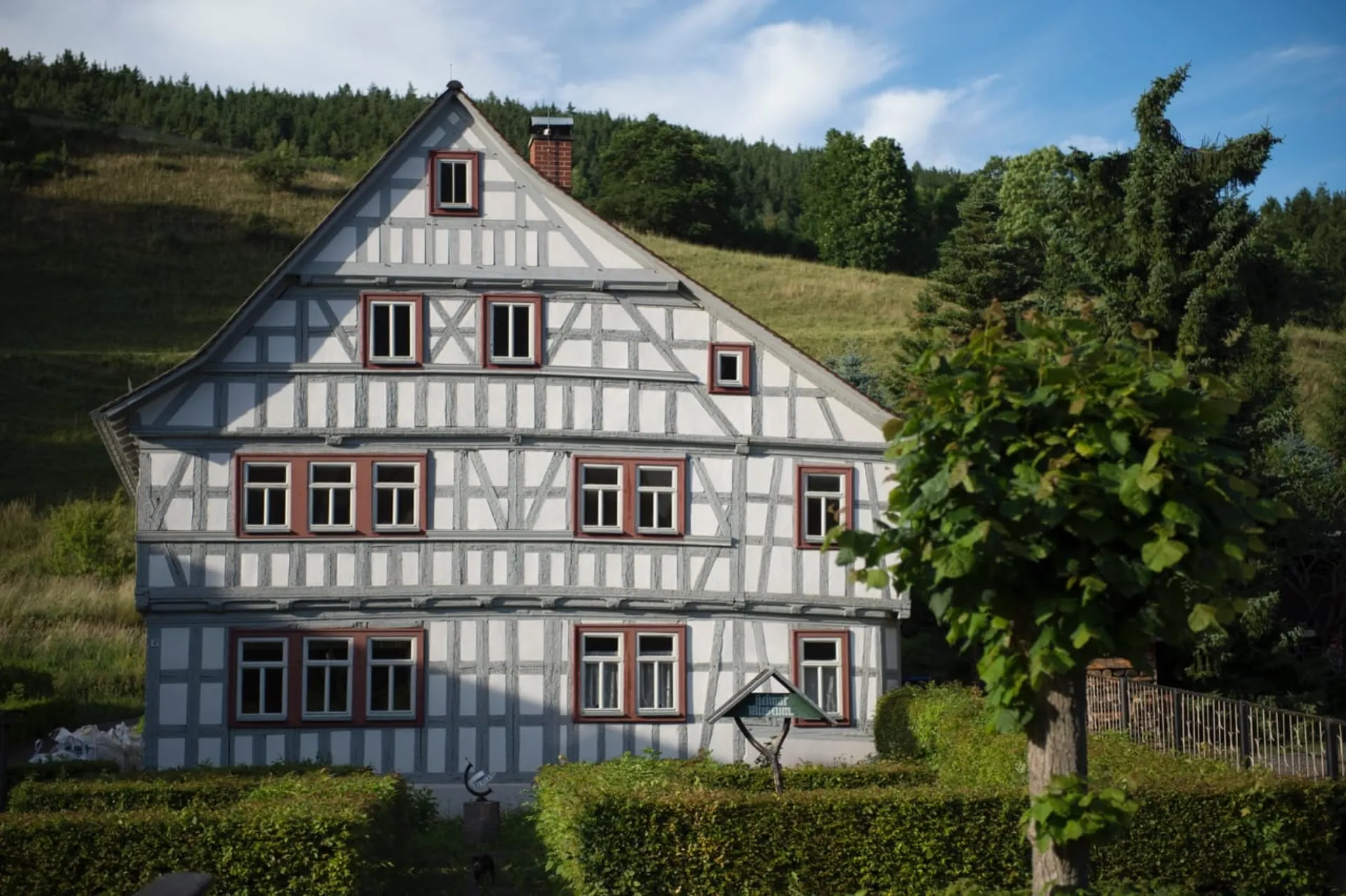From the beginning, the issue of land became a topic of concern for the IBA Thuringia, not least to address the issue of vacant properties. In 2014, the IBA nominated the idea for a ›revolving settlement fund‹ as an IBA candidate. This involved bundling empty houses and vacant lots by a state or nonprofit development company on a regional basis, in order to actively incorporate these areas into urban and rural development processes. The profits would have been used to acquire or temporarily purchase further properties. The principle of strong regional land management as an active structural policy found many advocates at the IBA expert workshop in 2016. However, the precise range of tasks, the legal structure, and financing of such a fund remained unclear. Too many aspects and existing institutions were affected, and there was little political will and willingness expressed by the state administration at the time. Nevertheless, the idea and contacts from the discussion process continued. Then, the IBA established the Sondervermögen StadtLand Thuringia (special asset) with the trias foundation, a nonprofit foundation for land, ecology, and housing. The citizen foundation, which was founded in 2002 and emphasizes the three aspects of land-ecology-housing, acts as the property owner. The stone began to roll when the association Haus Bräutigam e.V. took over the Sommerfrische Haus Bräutigam by way of a leasehold agreement and began searching for socially oriented cooperation partners. The association Haus Bräutigam e.V. took over the house through an inherited leasehold agreement, and after administrative costs have been deducted, the rental income flows back into new projects in Thuringia. The IBA and the users build on the foundation's many years of experience and contract management, which will continue beyond the IBA period.
While the Haus Bräutigam was offered by private hands, it was the municipality that was looking for a new owner for the second house in Döschnitz, another IBA Thuringia project. In both cases, speculation was to be prevented, and a reliable and long-term partner for project development and use was to be found. The nonprofit special asset is open to further projects in Thuringia, but a long-term usage perspective that ensures the refinancing of acquisition costs and the preservation of value is a prerequisite. Housing and commercial uses are suitable for financing renovation. The offer to transfer properties to the Sondervermögen StadtLand Thuringia as perpetual nonprofit foundation property is aimed at owners of vacant or underutilized properties as well as project initiatives and groups in Thuringia who view land as a common good and seek permanent use under long-term plannable conditions. In this way, they become part of a solidarity network of house projects, neighborhood and village initiatives. Within the Sondervermögen StadtLand Thuringia, exchange of experiences and advice as well as financial support for new projects are possible if there are corresponding earnings.
The question of whether land is better held by individuals, the government, municipalities, or a community foundation can only be answered based on the attitudes, goals, and activities of the owners. Vacancy, speculation, decay, and demolition do not do justice to the valuable, non-renewable resource of land and its potential for climate- and socially-just regional development. With the Sondervermögen StadtLand Thüringen at the trias foundation, the IBA has established a tool for the creation of community-oriented land ownership with the aim of activating vacant properties, supporting new users, and strengthening communities. The IBA is thus setting an example for a regional culture of transformation and active land policy that consistently focuses on sustainability and the common good.
 The Bräutigam House was almost beyond repair. Rather than slowly decaying as a speculative object, it is now being given a second chance as a place for temporary living and working.
The Bräutigam House was almost beyond repair. Rather than slowly decaying as a speculative object, it is now being given a second chance as a place for temporary living and working.
 The Haus Döschnitz, built in the 18th century, has a diverse history of use, serving as a residence for a brewery family, a refuge for displaced persons, the mayor's office, a hunting room, and a local history museum. The Haus Döschnitz association, in collaboration with local stakeholders, is developing the building into a center for education and research, culture and history, as well as a place for living and working between urban and rural areas, with a reach extending beyond the region. Picture: Dörthe Hagenguth.
The Haus Döschnitz, built in the 18th century, has a diverse history of use, serving as a residence for a brewery family, a refuge for displaced persons, the mayor's office, a hunting room, and a local history museum. The Haus Döschnitz association, in collaboration with local stakeholders, is developing the building into a center for education and research, culture and history, as well as a place for living and working between urban and rural areas, with a reach extending beyond the region. Picture: Dörthe Hagenguth.
The trias Foundation was established in 2002 to support and promote people and projects that seek solutions to societal issues related to land speculation, ecological behavior, and social living and coexistence. It is a thematic community foundation that draws its wealth from a broad range of citizens.